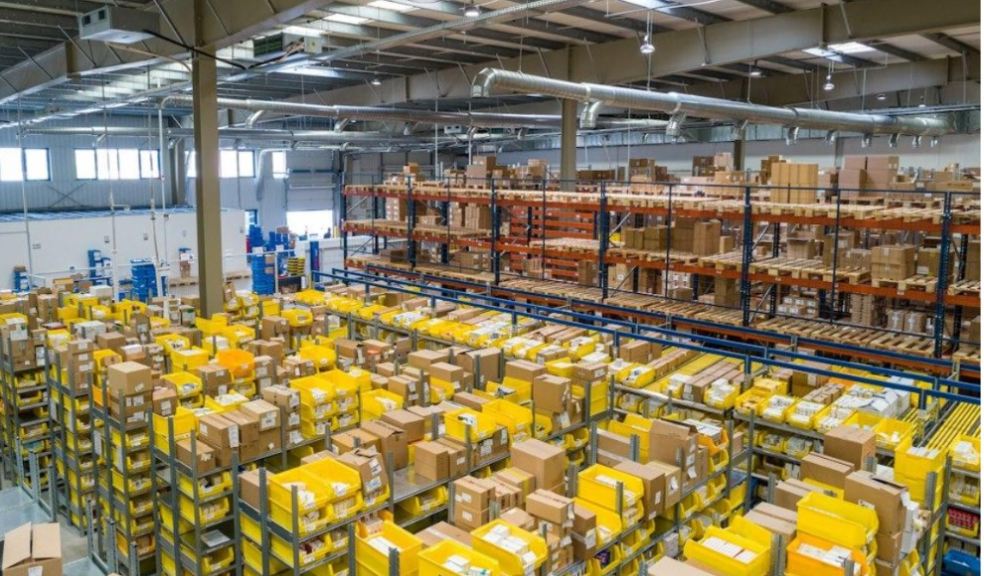
Green Commerce: Leveraging Eco-Friendly Fulfilment Strategies for Business Success
E-commerce was one of the industries that transformed immediately after the pandemic, adapting to customer needs and providing excellent customer support. However, the global epidemic triggered a massive increase in online shopping, automatically generating more packaging and waste.
Online shipping is the cause of significant waste of packaging and electronics, as well as generating carbon emissions due to inefficient transportation. Since most packaging is not recycled, electronics end up in landfills, and carbon emissions will linger in the atmosphere for hundreds to thousands of years.
Besides the obvious problem of damaging the environment, companies and their brand image are affected by not complying with sustainability. Customers care about nature and want businesses to have similar objectives of eco-friendly practices. While other organisations still practice greenwashing, your company could improve its brand image by adopting modern and sustainable strategies. Here’s how.
How does E-Commerce impact the environment?
Despite developing technologies and practices, traditional E-commerce retail is still standard. Yearly, more than 82.2 million tons of waste generated from containers and packaging end up in the municipal solid waste (MSW). These include food and beverage packaging and products used in shipping and storage.
On top of packaging waste, E-Commerce contributes to increased carbon emissions due to transportation factors, such as the vehicle type, the engine model or the age of the vehicle in relation to more or less fuel usage.
Sustainable packaging can help reduce a company’s environmental footprint with recyclable or biodegradable solutions. At the same time, eco-friendly transport is the equivalent of less pollution, decreased noise pollution and healthier communities.
Adopting eco-friendly fulfilment solutions comes with many benefits
Luckily, companies can access guidance on sustainable practices to lower their carbon footprint and emissions and become a trusted brand. One way would be to approach Monta fulfilment, in which technological innovations use AI dynamic forecast to assess product demand. This method helps decrease waste since your business produces based on accurate predictions, while deliveries will be improved through optimal inventory levels.
Another fulfilment benefit includes cost-efficiency, acquired through efficient receipt of goods and smart storage based on continuous optimisation. Moreover, the error-free packing features of the program improve customer loyalty and brand image.
Managing to introduce eco-friendly strategies concerning packaging and ordering will place your business on top of the competition since most clients prefer buying from companies that prioritise sustainability. That’s because customers are wary of their impact on nature and want to change that by purchasing products with a low carbon footprint.
Key strategies for sustainable E-Commerce fulfilment
Approaching sustainable E-Commerce can vary based on resources and opportunities, but straightforward practices will get you closer to becoming eco-friendly. For instance, switching from plastic to biodegradable or recycled materials for packaging is crucial. Cardboard, paper and compostable packaging are popular options from traditional ones.
A massive change is about energy-efficient warehousing and transportation. Reducing energy consumption with order fulfilment means organising the warehouse’s activities, from arranging shipping, packing orders and handling returns. On transportation, your company can reduce its carbon footprint and save costs by optimising the route to cut fuel costs, enhance load organisation and choose low-emission vehicles and alternative fuels.
Finally, investing in carbon offsetting programs contributed to lowering the amount of CO2 in the atmosphere by funding projects that mitigate climate change. On top of that, searching for renewable energy sources, like wind power, solar power or bioenergy, can cut costs and improve your company’s economic development.
Case Studies: Success Stories in Sustainable Fulfilment
Approaching sustainable fulfilment practices in a world of greenwashing is challenging but not impossible. Setting transparent goals was one of the sectors where Estée Lauder, a global manufacturer and marketer of beauty products, succeeded. The company aimed to avoid contributing to landfills, switch to electric vehicles and introduce sustainable packaging by 2025.
Regarding fulfilment practices, Estée Lauder minimises the C02 emission impact in delivery centres by investing in emission reduction projects. For now, the strategy includes only shipping in the US from the website, with in-store pickup and same-day delivery not being addressed.
How to Get Started with Eco-Friendly Fulfilment
Implementing green practices can be burdensome at first due to massive changes and different approaches. However, small steps can be done by optimising your packaging and shipping techniques. Choosing recyclable, biodegradable and reusable materials can lower your company’s waste, emissions and costs. Cardboard, paper and compostable plastic are the best current solutions. Packaging shouldn’t be wasted because it adds to the shipment volume. At the same time, eco-friendly shipping like ground transportation, rail and freight are better than air transportation.
Other strategies for sustainable fulfilment include auditing the company for the inventory level, customer demand and types of products; settling this information will help find the best fulfilling method to lower costs and environmental footprint, from in-house fulfilment to collaborating with a third-party fulfilment service provider.
Finally, introducing green practices and technologies, like switching from traditional to renewable energy sources, will help your business approach fulfilment in an eco-friendly manner. Leveraging solar, wind or hydropower makes a massive difference in warehouse and logistics improvement, so installing energy-efficient lighting or smart devices that monitor and optimise energy is advisable for long-term effects.
An eco-friendly beginning might be intimidating for small businesses or startups, which is why getting help from specialised fulfilment programs is best for being in touch with the regulations and continuously optimising your company’s efficiency.
Final considerations
The impact of climate change triggers the need for change in how companies handle their e-commerce practices. Due to growing packaging waste and high carbon emissions from transportation, the trend of sustainable e-commerce roared on the market.
Businesses that adopt sustainability can save costs and reduce their waste while building a positive brand image. Approaching eco-friendly e-commerce can be done by introducing biodegradable materials, energy-efficient warehousing and investing in carbon offset programs.
Green businesses that improve their fulfilment programs increase their customer satisfaction due to caring for the environment and supporting business growth through waste management and lower carbon emissions.













